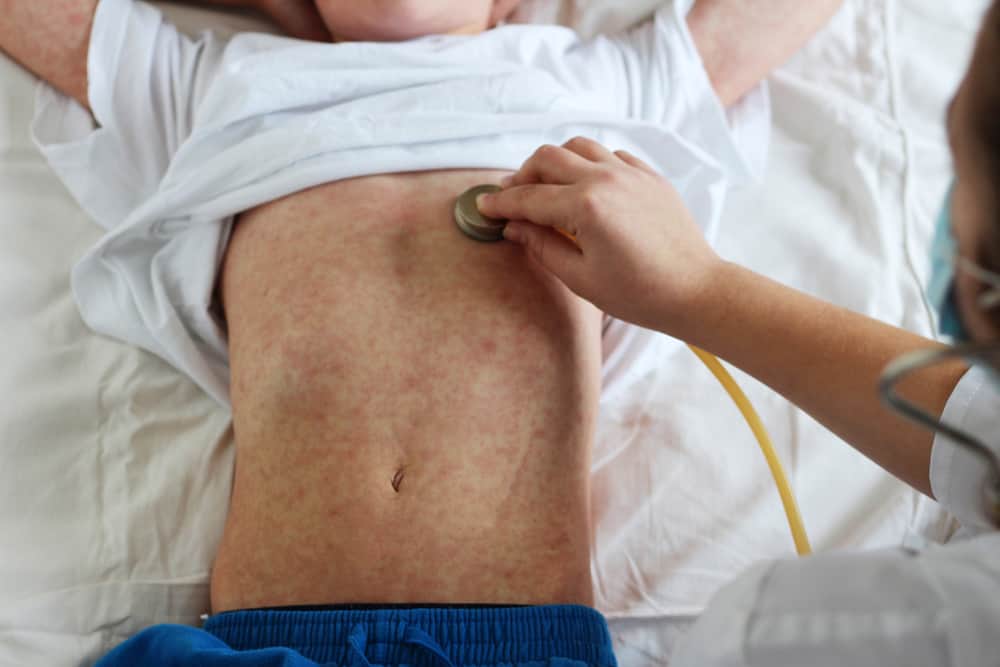Two further cases of measles have been confirmed in the past week in the Ipswich area, taking the total to 10 cases in the past month.
West Moreton Health public health physician Dr Catherine Quagliotto is urging people to make sure they are vaccinated against measles.
“People who are unsure or don’t know about their immunity to measles should contact their doctor to check whether they have had a full course of two measles vaccines,” Dr Quagliotto said.
“Our staff are tracing all those who may have been exposed to measles to try to prevent further spread of the disease. We’re asking people to get up to date with vaccination in case they are exposed to the disease so they maximise their chance of protection.”
Fortunately, the ninth case did not visit any public places while infectious, so efforts focused on protecting those in the household.
The tenth case visited the following places while unknowingly infectious:
- Splash YMCA Acacia Ridge Aquatics Centre from 12.30pm to 6pm on Sunday, 15 December 2019
- Ipswich Hospital Emergency Department from 8.43pm on Saturday 21 December 2019 to 2.52am on Sunday, 22 December 2019
“People in those areas at those times who are unsure or have concerns about their or their children’s immunity to measles should contact their doctor to check whether they have had a full course of two measles vaccines,” Dr Quagliotto said.
Dr Quagliotto said measles spreads very easily in the air when a person with the infection coughs or sneezes, so people in those areas should particularly look for symptoms over the next couple of weeks.
As several other people infectious with measles have visited public places over the past month, all residents of Ipswich and surrounding areas need to be aware of the signs and symptoms of disease.
The initial symptoms of measles include fever, tiredness, runny nose, cough, and sore and red eyes.
“This is followed a few days later by a blotchy, red rash which often starts on the face and then becomes widespread over the body,” Dr Quagliotto said.
“If unwell with the symptoms of measles, it is very important to phone ahead to your GP or other health service and advise them first that you could have measles, so that staff can take precautions to prevent spread to others.”
Due to measles being common before 1966, anyone born before 1966 is likely to have had the disease as a child and now be immune to measles. Dr Quagliotto said people who have been adequately vaccinated with two recorded doses of Measles Mumps Rubella (MMR) vaccine are also likely to be immune.
“Queensland Health staff will continue to investigate this case and do whatever we can to prevent further transmission.”
For more information on measles, visit the Queensland Health website or contact 13 HEALTH
(13 43 25 84) any time, any day.

Measles begins with symptoms such as fever, tiredness, cough, runny nose and/or red inflamed eyes. These symptoms usually become more severe over three days.
The cough is often worse at night and the affected person may wish to avoid light because of sore eyes.
At this stage of the illness, there may be small white spots on a red base in the mouth on the inside of the cheek (Koplik’s spots).
This is then followed by a blotchy, dark red rash usually beginning at the hairline.
Over the next 24 to 48 hours, the rash spreads over the entire body, during which time the person generally feels very unwell.
Typically with measles, the fever is present and the person feels most unwell during the first couple of days after the rash appears.
The rash usually disappears after six days.
About the virus
Measles is an acute, highly infectious illness caused by the measles virus.
Measles can cause serious complications such as pneumonia (lung infection) and encephalitis (inflammation of the brain).
It may also cause middle ear infection.
Measles should not be regarded as a simple mild disease.
Deaths occur mainly in children under five years of age, primarily from pneumonia, and occasionally from encephalitis.
Complications are more common and more severe in people with a chronic illness and very young children.


